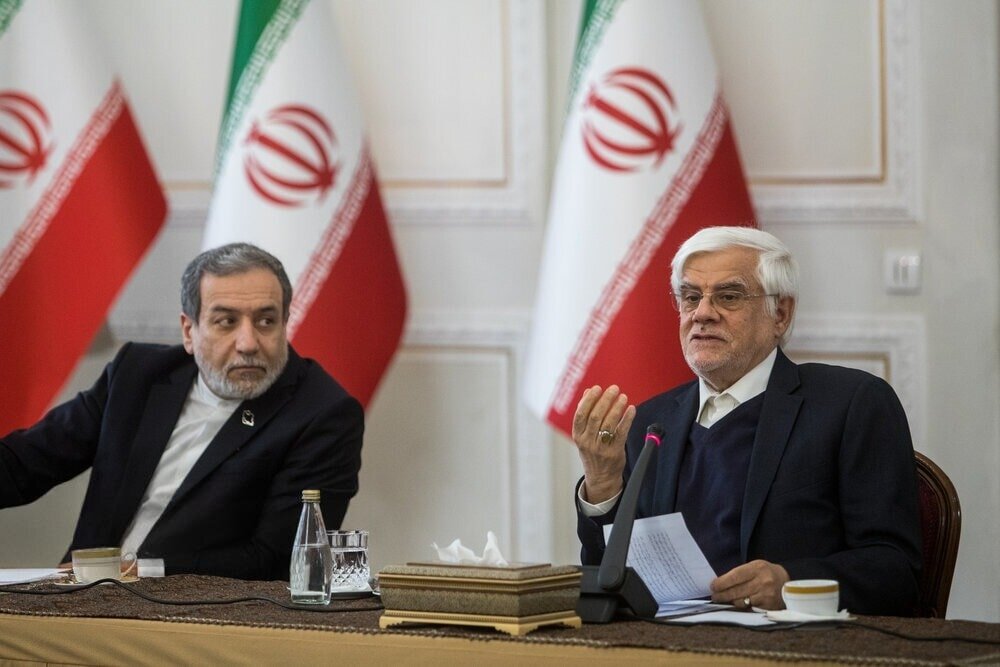Iran will negotiate, but knows how to counter sanctions too, says VP

TEHRAN – Mohammad Reza Aref, Iran's Vice President, spoke at a session of the Foreign Economic Relations Committee in the Foreign Ministry on Monday, emphasizing that the country is "open to negotiations, but has learned how to counteract sanctions."
Aref condemned the sanctions imposed on the Iranian people as unjust and inhumane, stating, “If the enemy's aim had been limited to the government, sanctions on essential goods and medicine would not have been imposed.”
He further expressed that Iran expects the international community to assist in lifting these sanctions.
"We are open to negotiations, but we must reassure our economic partners that we will counteract the sanctions while continuing our development programs," Aref said.
The vice president underscored the significance of comprehensive relations, particularly economic ties with regional and export-target countries.
He remarked that the Foreign Economic Relations Committee, established in 1981, has been a hub for interaction and thought regarding foreign relations for the past 43 years.
Aref emphasized the committee's role in analyzing current regional conditions and shaping foreign policy strategies to enhance connections with neighboring countries, Islamic countries, and those in Asia, Europe, Africa, and the Americas.
He also highlighted the need for increased engagement with international institutions.
"From the 1980s to now, the committee's responsibilities have significantly changed; we are now exporters, especially in technical and engineering services where we rank high in quality, and sectors like high-tech, we are among the leaders," Aref explained.
The vice president also highlighted that in the defense sector, where Iran was once unable to acquire necessary supplies, it now occupies a formidable position.
Aref also discussed Iran's progress in international organizations, highlighting the country's active and notable presence in dynamic regional organizations such as the Shanghai Cooperation Organization (SCO), the Eurasian Economic Union, BRICS, and the Economic Cooperation Organization (ECO).
He acknowledged that while Iran's performance in Africa and Latin America could have been better, there are opportunities to improve and better utilize these regions in the future.
"Health diplomacy is one of our major advantages that we must leverage, alongside our high-tech capabilities, which are among our regional strengths to enhance our diplomatic efforts," he noted.
Aref stressed that Iran believes cultural and economic diplomacy complements political diplomacy.
The vice president also spoke about the strategic importance of maritime development, given Iran's thousands of kilometers of coastline in the south and north of the country.
"Alongside sea-oriented development, the development of Makran is a priority for the current government," Aref stated.
The official also said that Makran can both impact national development and help distribute the country's population towards the east.
Aref concluded by emphasizing the complementary nature of political, scientific, cultural, and economic diplomacy, urging the government and relevant organizations to work together in these areas to ensure Iran's continued development and success on the global stage.
Leave a Comment